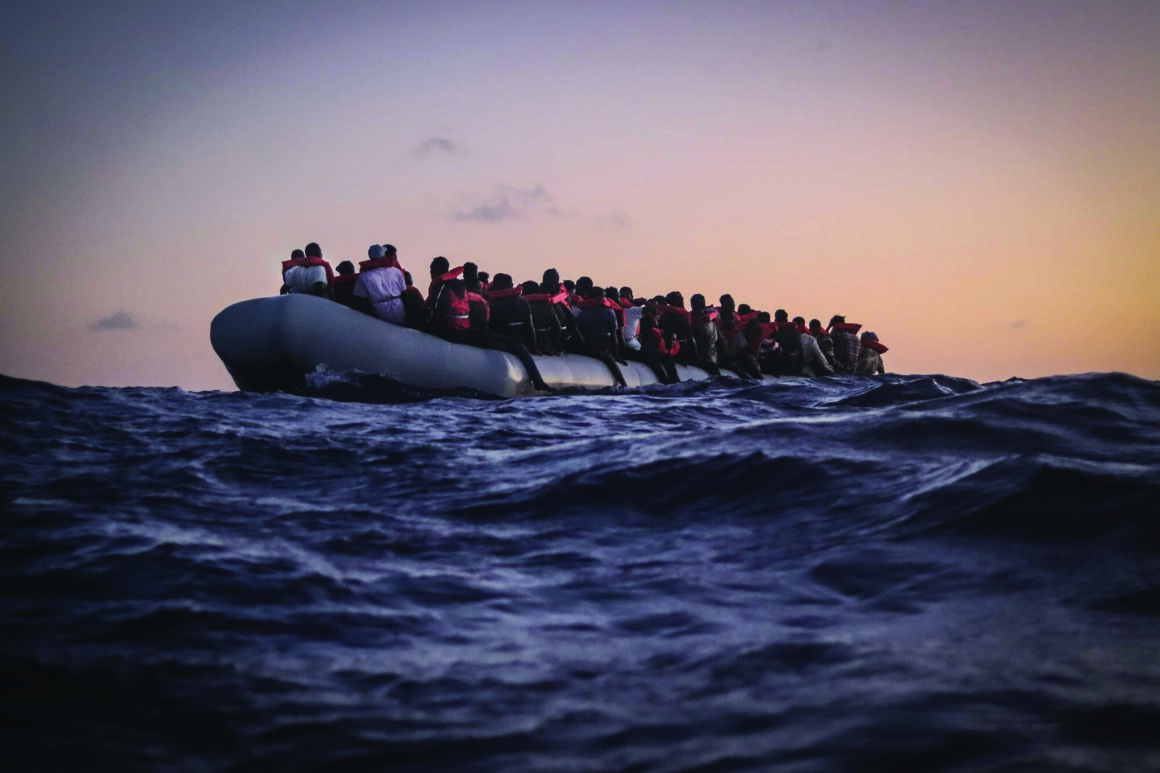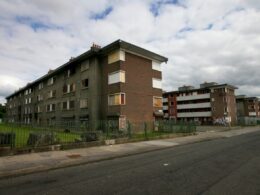In the Tunisian port city of Sfax, tens of thousands of migrants from across the African continent exist in a state of suspension, writes Harper Cleves. Often living in makeshift migrant encampments in parks and streets, they hope to be able to save the nearly €700 necessary to take a boat across the Mediterranean into Europe.
A short distance away from many of these migrant encampments, on the outskirts of the city, new cemeteries are being constructed especially for those whose journeys fail; their bodies found washed up on shore, or discovered by the few local fishermen who have not yet sold their boats to smugglers profiting from the desperate need for passage. Their number is so great they could not be accommodated in pre-existing plots.
The migrants of Sfax are keenly aware this may be their fate also. This year alone 2,000 have already died crossing the Mediterranean. Since 2014 at least 27,800 have perished in the same waters. And yet still the mere possibility of reaching Europe has compelled some 24,000 to take this journey from Tunisia in the first four months of this year alone. These harrowing figures do not even account for the many who perish before ever reaching the port.
Why migrate?
According to a 2022 United Nations report, the primary reasons for African migration to Europe are “conflict, repressive governance, and limited economic opportunities.” Conflict and instability abound, causing many to flee home. Since 2020 there have been ten attempted or successful coups in West and Central Africa.
Such authoritarianism and violence is born out of a deep instability. The inflation and cost of living crisis experienced by so many across the globe is exacerbated in regions with a legacy of imperialism. The climate crisis, in the form of flooding and droughts, and the rampant spread of infectious diseases such as malaria and ebola, is also causing a massive scarcity of food and resources, further spurring violent conflict and creating unrest amongst the masses.
A former student from Sudan said while speaking to a journalist: “I would cross the sea because there’s no solution here. Of course it’s dangerous but just – you know – a human being must go.”
Failure of governments and international institutions
What such brave and resilient people – seeking solace from violence and hunger – are met with by the international institutions of capitalism should incite a sorrow and rage that is a rallying cry to us all.
In the mission statement of the European Union (EU) it states that the body aims to “promote and protect democracy and universal rights in Europe and around the world.” Such lofty promises of human rights and dignity likely ring hollow to the 35-year old Sudanese man who has attempted to reach Europe by boat to seek safer shores five times, only to be intercepted each time by the EU-backed Libyan coast guard, who in his last attempt shot him in the hand and foot.
The EU has recently finalised a deal with Tunisia, which included €100 million for “border management” and “anti-smuggling” action. This large sum is also meant to cover “search and rescue” missions. However, as we can see from the previous accounts, this is probably more aptly described as “search and return” or “search and treat as criminals.” In fact, in the past year, humanitarian aid workers operating a search and rescue mission in the Mediterranean actually faced charges from Greek authorities for saving refugees.
Smiling photos of EU officials and European politicians alongside Tunisian president Kais Saied, were met with widespread criticism. President of Tunisia since 2019, Saied has been criticised for his growing authoritarianism and his so-called “democratic coup” used to consolidate his own leadership. He also has described the recent migration of black Africans to Tunisia as a “criminal plot” to change the demographics of the country. In what has been described as a ‘witch hunt’ against sub-Saharan Africans, Saied has ordered the expulsion of undocumented immigrants, banned them from public transport, kicked them out of their houses, and arrested them on the streets.
When Ylva Johansson, the EU Commissioner for Home Affairs was asked if they could trust the Tunisian government to respect migrant rights she replied: “It’s not black or white”, but maintained that this would not prevent the EU from critiquing his policies. To do so would represent the utmost hypocrisy. EU treatment of refugees and migrants fleeing war, hunger, and poverty drips with the condescension, indignity and racism in action, that Saied expressed in words.
Irish journalist Sally Hayden has recently penned an article in the New York Times on this issue titled ‘Welcome to Europe, Where Mass Death has Become Normal.’ Looking closely at the EU response to this crisis, it would be fair to say that mass death has not only become normal, it has become policy.
Where now?
The callous treatment of refugees exposes the feigned benevolence of institutions like the EU. Far from being neutral arbiters, they are the protectors of wealth and power for the business owners and leaders of the Western world. Those who sit on these bodies represent the same nations that ravaged and underdeveloped Africa in the greedy pursuit of profit and power for their elites. They represent the same companies that continue to destroy the planet for profit. They represent those who impose austerity measures on the working-class and poor across Europe to line the pockets of the rich.
The capitalists and their representatives in the EU and in governments across Europe are just as unwilling to invest in the social spending needed to accommodate migrants from around the world as they were to construct the infrastructure necessary to sustain life when colonising Africa. Scapegoating the African migrant for the current underfunded services across Europe
allows them to maintain the status quo.
A united movement of workers of all races and nations against our common oppressors has the potential to rebuild a world on our terms; sustainable, peaceful and based on the needs of the many, rather than the greed for the few. Socialist change is essential to answer not only to the current crisis of mass displacement and EU mismanagement, but the crises that fuel these issues in the first place.












